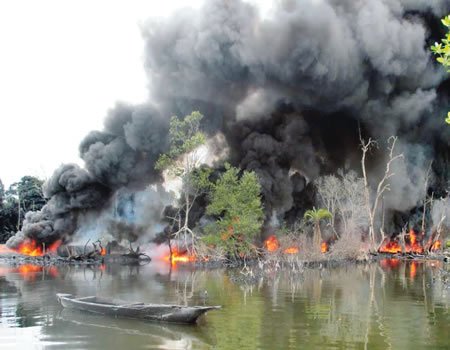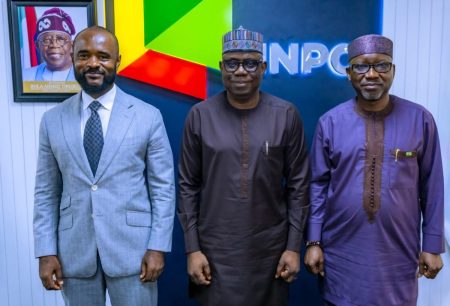Clara Nwachukwu
26 August 2011, Sweetcrude, Lagos – Political intrigues and wranglings within the Senate and the executive have been identified as major factors for the non-passage of the long-awaited Petroleum Industry Bill, PIB, which has had a chequered history at the National Assembly.
Deliberations on the PIB, according to a former lawmaker, had been concluded in readiness for passage as at December 2010.
Senator Lee Maeba, former chairman, Senate Committee on Petroleum (Upstream), who spoke for the first time regarding the intrigues at a conference organised by Energy Correspondents in Lagos, stated that at the end, selfish interests overrode that of the nation, thus preventing the bill from being passed.
Maeba, who spoke on “Implications of Delay in the Passage of the PIB,” said continued delay portended grave consequences for Nigeria and the economy, as already the industry had lost in excess of $28 billion in investments.
Most of these investments have found their way into neighbouring countries including Angola, Ghana and Burkina Faso, which have more stable policies.
Besides, he expressed fears that the original PIB, as drafted by the Oil and Gas Industry Committee, OGIC, and brought to the National Assembly, might not be the one that would eventually be passed as many of the clauses in the original bill had either been watered down or thrown out completely.
The Senator, who revealed that he had earlier in the day been warned “to be careful what you say,” noted that the initial bill was predicated on a tripod that would make the oil and gas sector more vibrant for the benefit of all Nigerians.
He said: “We wanted a law that will protect the interest of foreign investors, enhance the welfare of the people of the host communities by allocating 10 per cent equity of oil and gas projects, while also increasing the participation of indigenous companies in the industry that has remained the enclave of multinationals such that in the nearest future at least 30 per cent of crude oil export will be done by Nigerian companies.”
Specifically touching on some of the intrigues, the former legislator identified Clause One, in which he said, “So much power was conferred on the minister, such that the minister had the power to revoke and reallocate oil blocks to who he/she deemed fit based on being a good company.
Furthermore, he said that the legislators strived to remove the industry regulator from the grips of the ministry, as is the current situation, to make it truly independent, effective and efficient with the creation of the National Petroleum Directorate, to replace the Department of Petroleum Resource, DPR.
There were also the issues of the scrapping of the Petroleum Products Price Regulatory Agency, PPPRA, and the Petroleum Equalisation Fund, PEF, as their roles would no longer be needed under a deregulated downstream system, to ensure equitable and sustainable distribution and supply of petroleum products.
However, he regretted that selfish interests in government overrode these national interests and these clauses were watered down, so much that the PIB, which should have given additional strength to the Nigerian Content Act, is now one of its greatest weaknesses.
According to Maeba, “Most of the industry projects are based in the upstream, and the PIB would have guided legislations that would increase indigenous participation especially the marginal field operators, who were given special tax exemptions to encourage their growth.”
In view of the provisions of the constitution that all proceeds from the industry must be paid into the Federation Account, the lawmaker recalled that late president Umaru Yar’Adua after negotiating with state governors, approved that the value of the 10 percent equity should be paid into a fund on behalf of the host communities, but this was not to be.
The consequences of these and a host of many other factors is that apart from capital and investment flight, the industry is also at the risk of the resurgence of restiveness, as the equity participation is one of the ways that was used to broker peace in the Niger Delta.




